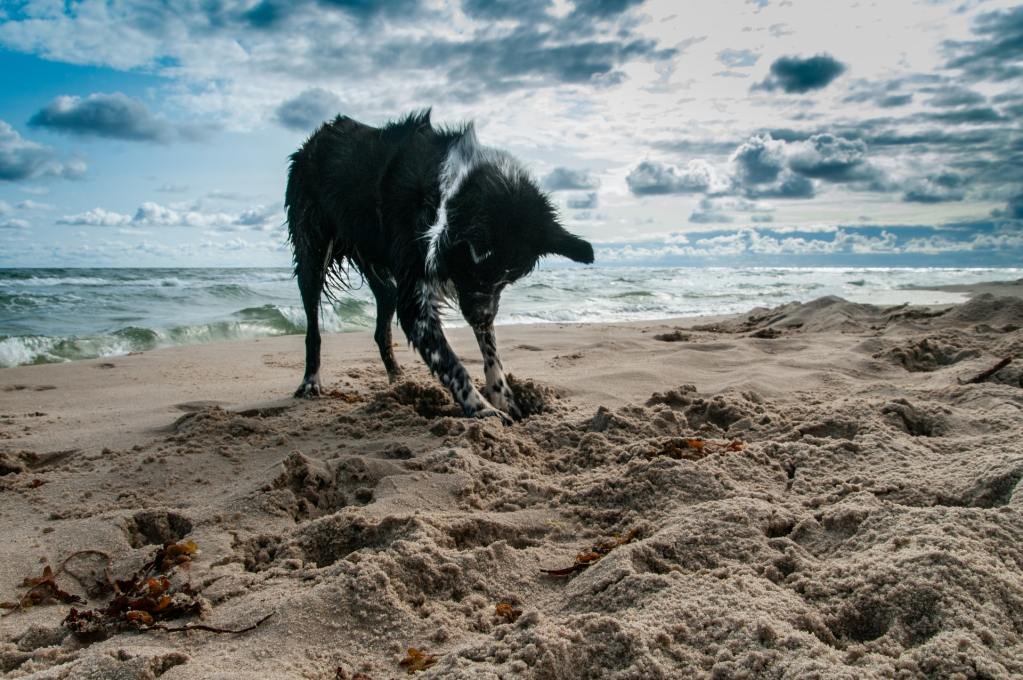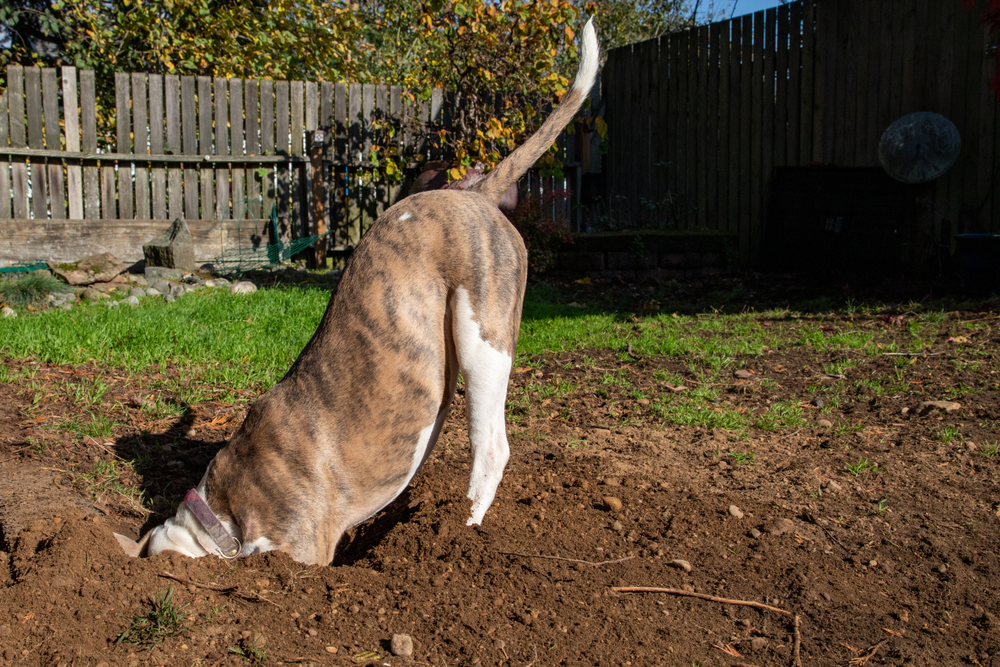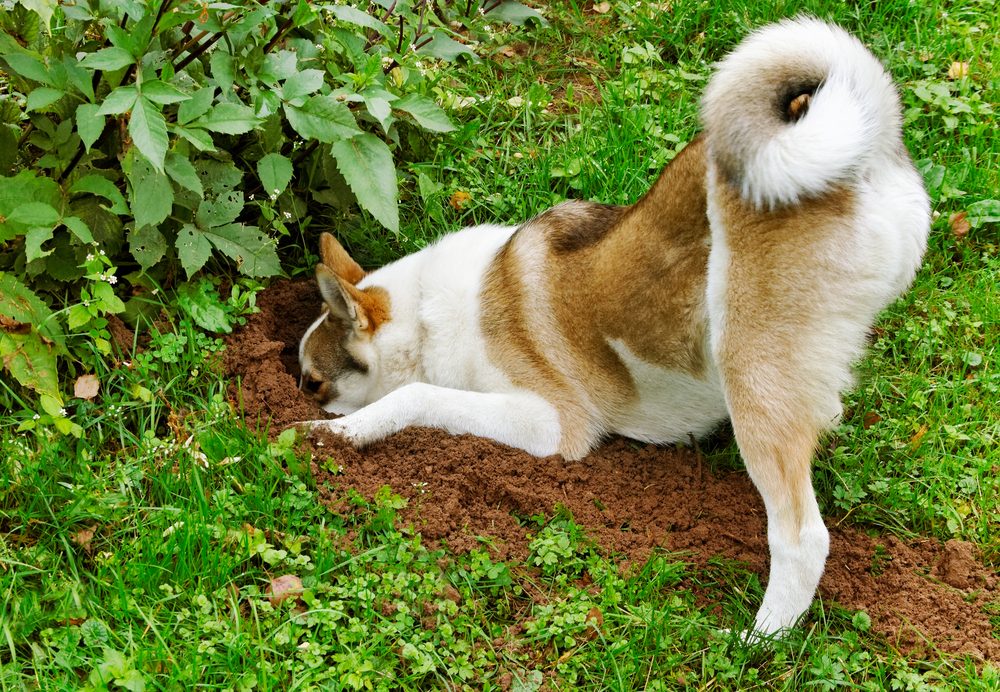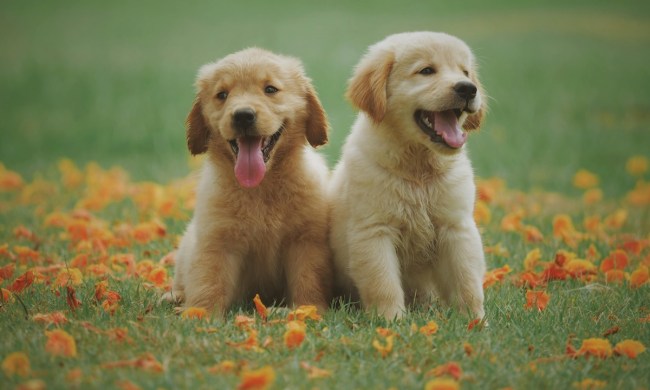
You’ve probably seen it on television numerous times. Once the family pup receives a bone, they immediately races out into the backyard and begins to dig. If you have dogs, you’ve undoubtedly experienced the same phenomenon in real life.
Whether you have a big dog or a tiny pooch, you may notice freshly dug holes in the backyard or suspicious lumps under your blanket. If there’s one common behavioral thread linking all dog breeds, it’s the tendency to bury snacks, stolen trophies, and sometimes favorite stuffed animals. But why do dogs bury bones and other things? Let’s find out.
Decoding dog behavior

You’re not alone if you’ve ever wondered, “Why do dogs bury things?” As it turns out, this behavior dates back to the days of early canines. While many dogs come from loving homes and never have to forage for their next meal, your pup’s ancestors weren’t as fortunate. If a dog could find anything of value, such as a meal or a bone, they would dig a hole and bury it to keep their food safe from other dogs.
Fulfilling an ancestral drive

Because food was scarce for your dogs’ ancestors, they couldn’t afford to allow fresh meat to rot in the sun once their bellies were full. Burying their kills in the dirt preserved meat while protecting it from scavengers and sunlight, allowing the dogs to return to their treasure trove when they grew hungry again. The deeper the hole, the cooler the earth inside it, so more intelligent dogs may instinctively dig deeper into the soil to bury their resources.
Just because you feed your poodle on a strict daily schedule doesn’t mean they can shake the instinct to protect their precious treats. While hunting breeds tend to exhibit this behavior more often than sporting or toy breeds, even a Chihuahua may bury their favorite tasty snack to protect it from harm. Some breeds have stronger prey drives than others, proof that inherited traits can sometimes win out over training. In this case, having regular meals and plenty of treats isn’t enough to circumvent your dog’s ancestral desire to bury their treasure.
Dogs don’t bury just food

If you’ve ever unearthed your dog’s favorite squeaky toy from between the sofa cushions, you know hoarding and burying aren’t limited to food. Any item your dog considers valuable, whether it’s an old toy or one of your shoes, is a prime target for burial. Not all dogs bury their toys, but it’s linked to the same instinctual need to save their special items in a secure location.
How to keep dogs from burying things

While they aren’t 100% guaranteed to work every time, there are ways you can cut down on the mounds in your yard. Today’s dogs live in an age of excess, and sometimes having too many toys to choose from can bring to life the cliché “too much of a good thing.” If your pooch has dozens of toys littering your home, they’re much more likely to bury the surplus in the backyard.
Try limiting your pup to a few favorite toys at a time. When they tire of playing with their current selection, you can swap them out for other toys. Not only can limiting access to toys help minimize the urge to bury their collection, but also, even old toys become new again when your dog hasn’t played with them for a while. Similarly, give your dog a chew toy before they eat. If their stomach is already full when they receive a treat, they’ll be more inclined to save their snack for a rainy day.
Do dogs remember where they bury their bones?

If your pup pup carefully places their bones underground — or under the blankets — you may wonder whether they’ll be able to find them again. But our beasties have ways of locating their possessions that we don’t. A canine’s uncanny ability to rediscover their hidey holes comes from two super instincts: sense of smell and spacial memory.
Sometimes, when you think a dog is remembering where they left an item, it comes from sniffing it out again. In other instances, though, they build a mental map of their buried treats and toys. Dogs have much better spatial awareness of their surroundings, including where they’ve stored their stuff for safe keeping.
Is burying harmful behavior?

The tendency to bury favorite toys and snacks is deeply ingrained in many dogs. It’s usually harmless, but problems can arise. While the famous image of a dog burying their bone is rooted in our minds, you actually shouldn’t give dogs bones at all. Bones can splinter, cutting your dog’s mouth. In some cases, bone shards may pierce their intestines.
Stick with safer toys like dog biscuits and chews instead. Additionally, if your dog is prone to digging obsessively, their paws may become sore. Dogs sometimes dig until they damage their paws and nail beds, creating a breeding ground for infection.
You’ll also want to make sure the soil in your backyard is safe for your pooch, as exposure to certain chemicals can cause skin irritation and respiratory problems. If your dog exhibits compulsive behaviors, it may be time for an intervention. To keep your pooch safe, give them vet-approved treats, monitor their behavior, and don’t be afraid to reach out to a professional if you’re not sure what to do.



